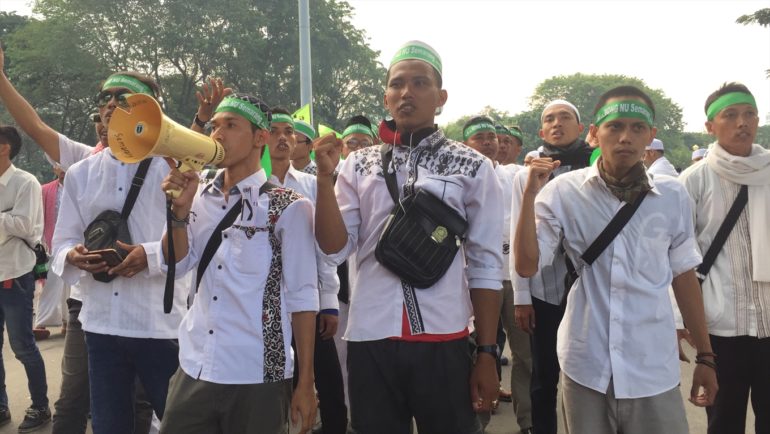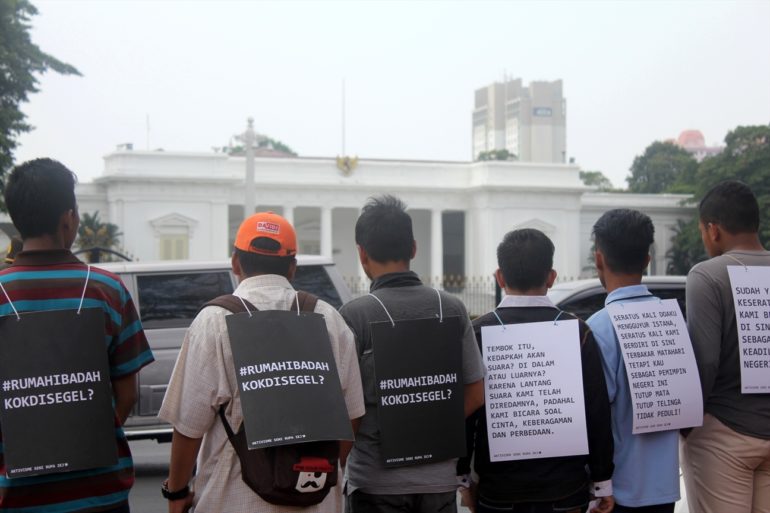
“The election and trial of Jakarta’s former governor ‘Ahok’ have exposed increasing radicalization in Indonesia, especially among the young … and it has led to a more aggressive campaign to confront Islamist radicalism,” writes Paul Marshall.
In his article for the Lausanne Movement, the Wilson Professor of Religious Freedom at Baylor University says Saudi Arabia plays a major role in the growth of radical Islamism in Indonesia by offering “a well-funded network of schools, scholarships, imams, and mosques that try to replace local interpretations of Islam, which have usually encouraged democracy and peaceful relations between religions, with Saudi Wahhabism”.
According to Marshall, Saudi Arabia has established more than 150 mosques in Indonesia since 1979, provided schoolbooks, brought in its own preachers and teachers and disbursed thousands of scholarships for graduate study back in Saudi Arabia.
According to British historian Charles Allen, the Gulf monarchy has spent more than 70 billion dollars since 1979 to finance such projects abroad, in places like Bangladesh and East Africa.
“Alumni of Saudi universities have become influential in extremist circles,” adds Marshall. “They include Habib Rizieq, the founder of the Islamic Defenders Front, and Jafar Umar Thalib, who founded the anti-Christian Laskar Jihad militia.”
The Indonesian government has responded to the increased danger of extremism by banning radical Islamist groups and it is introducing new rules to stop the spread of radical views in its universities, notes Marshall.
But, as World Watch Monitor reported yesterday (18 September), according to Human Rights Watch, students in Saudi Arabia’s schools receive religious education that “contains hateful and incendiary language” towards other Islamic traditions than Sunni Islam, and severe criticism of Jews, Christians and people of other faiths.
As part of an effort to combat a rise in extremism and religious intolerance in the country, the Jakarta city government and Indonesia’s largest Islamic organisation, Nahdlatul Ulama (NU), have joined forces to train and educate Islamic preachers to spread messages of unity and peace, reports the Catholic news agency UCAN. The goal of the programme, which will begin in November with the training of 1,000 clerics, is to teach them “to preach proper Islamic teachings … and a tolerant Islam”, according to the Jakarta governor.
Bonar Tigor Naipospos, deputy director of the Setara Institute for Democracy and Peace, UCAN “that intolerant and extremist groups target mosques, especially those in housing areas and near offices to spread their views”.
Churches closed
Meanwhile local sources have told World Watch Monitor that three churches have been forced to close down in the past six months in the city of Cilegon – in Banten, Java’s westernmost province – after Islamists protested that they did not possess the necessary building permits.

It is difficult for churches to obtain a building permit in Indonesia, and over the years hundreds of churches have been closed for failing to show the necessary documentation when questioned.
The 21 churches registered under Cilegon’s Inter Church Cooperation Body (BKSAG) have all either been closed or currently face that threat, according to its President, Steven Polii, who says that an historic agreement between local Islamic leaders and the government dictates that no churches are allowed in Cilegon, in order to preserve its Muslim identity.
But Cilegon’s churches are refusing to give up. “We will continue our Sunday service as usual in our old place despite the closure, because we are aware of our religious rights. The constitution guarantees it. It is not us who don’t obey the law. We did apply but never got the approval,” Tony, an elder from Cilegon’s Baptist church, told World Watch Monitor.
As World Watch Monitor reported in March, three churches were closed down in Bogor, in the neighbouring province of West Java, with local authorities saying they could not guarantee Christians’ safety. In the same month, a church in Bogor was told that it could reopen its doors if it also allowed a mosque on its premises.
Last year, the brand new Santa Clara Church in Bekasi was sealed off by an Islamist group demanding that its permit be annulled. The Asian Human Rights Commission started an appeal on the church’s behalf, calling for the government to “revise the law on the establishment of worship places without any discrimination among the various religions and beliefs that exist in Indonesia”.
And back in April 2012, local authorities in Banten closed down a small Pentecostal church about 15 miles west of Jakarta, in Tangerang city, after members of the radical Islamic Defenders Front had attacked it.